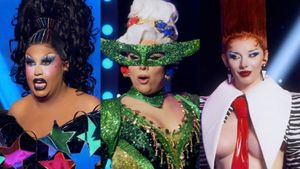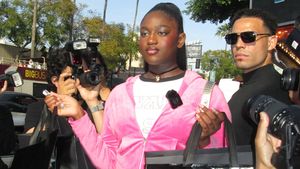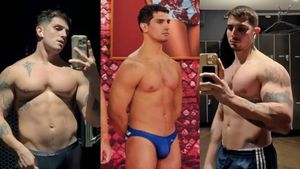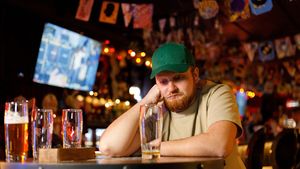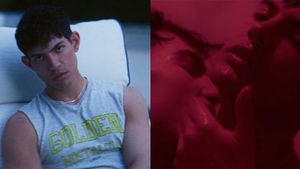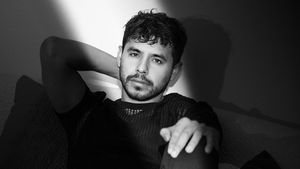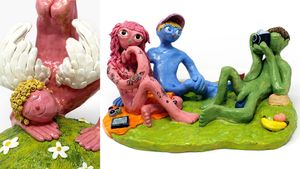In its three seasons, RuPaul’s Drag Race UK has already launched the careers of several drag icons, but Bimini and Black Peppa, who grace the cover this month’s Principle magazine, are two of the most beloved.
While their stars are shining brightly now, it hasn’t always been a walk on the runway for either queen. Both opened up to the publication about their struggles growing up queer and the painful challenges facing the queer community now as the right-wing increasingly sets their sights on LGBTQ+ people and drag queens

For Bimini, realizing that they were queer started simply with a feeling that they didn’t belong. “I was very flamboyant from a young age, it was quite obvious that there was something going on. I don’t know if I understood the language or if I was too young to understand how I felt or what I felt, but I always felt different,” they recalled. “I always felt a bit weirder than others. I used to get called gay from such a young age because I was that kid doing cartwheels in supermarkets and jumping around and dancing around to S Club 7. I was like living my best little gay life.” While they tried to hide it in their teens, they shared that they were grateful that they had the love and support of their family when they came out.
Black Peppa sadly didn’t have that same kind of open embrace when they came out. “I think my parents, their initial, natural response was, ‘This is not right. You shouldn’t be acting this way,’ because they were in a protective mindset at this point and they’re also religious and they just don’t want people to make fun of me or think it was wrong,” Peppa said. “I was in a really long period of praying that I wasn’t actually gonna be gay. It sounds so weird saying that now, but yeah, I remember being like, ‘Lord, just please don’t let me be gay. I hope this is just like a phase or something,’” they recalled to
Principle.
As heartbreaking as Peppa’s story is, it also prepared them for a time when LGBTQ+ people have become the wedge issue of the right, and they has shaped the way they think about Pride. “Being queer is not just for pride season, it’s the everyday experience. There’s fear in my heart whenever I leave the house and I don’t have to be wearing boots, I don’t have to be wearing a skirt, I just have to exist, and it’s a struggle, you know? I’ve said this in many Pride shows, don’t forget to be there for your queer family and your queer friends, especially if you’re an ally,” they said. “Don’t just come to pride and use that time of the year to be an ally. Go to the protest, go to the march. Educate yourself as well because our battle is an every single day battle. I think nothing could be more amazing than having people understand what we go through and be there for us when we need it the most because we’re in crazy times.”
“Most queer people just want acceptance,” added Bimini. “We just had a conversation about our experiences growing up and how difficult it was being queer and not being able to be out. We don’t want that. They use this argument about grooming the children, it ain’t grooming the children. There are gonna be queer kids no matter what happens. It’s about making life easier for them. That’s what pride is about.”
Read Principle’s full interview here, where the open up about how drag changed their lives, their time on the show, and what their futures hold.


































































































